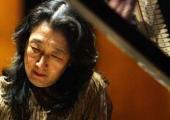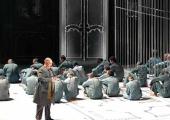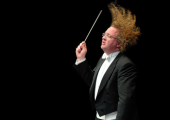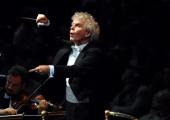theartsdesk Q&A: Conductor Riccardo Chailly
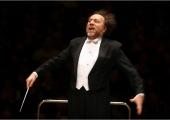
The great Italian conductor talks Beethoven, Bach and speedboats
When Riccardo Chailly (b 1953) left the Royal Concertgebouw for the Leipzig Gewandhaus, Richard Morrison said it was as if Bill Gates had ditched Microsoft for Aeroflot. The Gewandhaus has since become one of the lustiest of orchestral beasts in the world. Chailly and his orchestra make a rare appearance at the Barbican next Thursday and like all his previous visits it's likely to be a pretty unmissable event.



